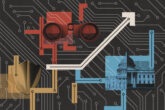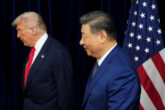August 03, 2018
The Census Bureau owes us some peace of mind
These days, it takes little imagination — none at all, in fact — to conceive of a hostile foreign actor hungry for detailed information about millions of U.S. voters and determined to undermine Americans’ confidence in their democratic institutions. What does require just a bit of vision is recognizing that there is a fast-approaching opportunity for such actors to advance their agendas: the upcoming census.
That’s because the 2020 Census will be the first electronic census in U.S. history. Going digital will enable the process to become cheaper and more inclusive — both good things. But it also provides the opportunity for bad actors to exploit any cybersecurity vulnerabilities that this digitized approach might generate.
That risk takes at least two forms. First, foreign governments — Russia in particular — could use the bounty of information from the decennial census for microtargeting on social media to propagandize and polarize U.S. voters. Second, these countries could undermine Americans’ trust in democratic institutions, as governments from Moscow to Beijing have already made clear is in their interest.
Imagine if it became public that a Russian or Chinese hacker had penetrated the database where the 2020 Census results will be held, or even that hackers had just penetrated the transmission of information from respondents to that database. Americans might well begin to doubt whether the results of the census — which determine the allocation of seats in the House and votes in the electoral college — are trustworthy.
These are not idle concerns; they’re very real. Special counsel Robert S. Mueller III described similar cyber-interference strategies by Moscow during the 2016 presidential election in his recent indictment of 12 Russian officials for hacking the Clinton campaign and Democratic National Committee. So, too, did the bipartisan report from the Senate Intelligence Committee.
Read the Full Article at The Washington Post
More from CNAS
-
Transatlantic Security / Technology & National Security
Look Before We Leap on Artificial IntelligenceThis article was originally published on The Dispatch. A debate about the role that artificial intelligence should and will play in society, and how it will affect humanity fo...
By Jon B. Wolfsthal
-
Technology & National Security
Caleb Withers on the Cybersecurity Frontier in the Age of AICaleb Withers, research associate at the Center for a New American Security, joins Kevin Frazier, the AI Innovation and Law Fellow at the University of Texas School of Law and...
By Caleb Withers
-
Technology & National Security
Prepared, Not ParalyzedExecutive Summary The Trump administration has embraced a pro-innovation approach to artificial intelligence (AI) policy. Its AI Action Plan, released July 2025, underscores t...
By Janet Egan, Spencer Michaels & Caleb Withers
-
Indo-Pacific Security / Technology & National Security
Sharper: Tech + ChinaRecent talks between President Donald Trump and Chinese Communist Party General Secretary Xi Jinping placed a spotlight on emerging technologies, from high-end chips to minera...
By Charles Horn & Sevi Silvia




